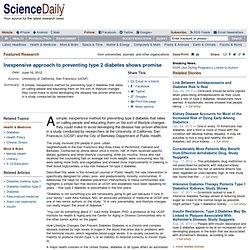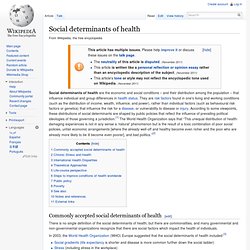

Healthcare Entrepreneurs. Although we often associate the term entrepreneur with profit seeking, the healthcare field is teeming with innovators who are largely motivated by altruism . As I wrote in my new book Priceless: Curing the Healthcare Crisis , take Dr. Jeffrey Brenner of Camden, New Jersey,* In any other field, Brenner would be a millionaire, but because he’s in healthcare, he doesn’t know how he’s going to make ends meet. Like entrepreneurs in every market, Brenner thought outside the box. He discovered an ingenious way of lowering health-care costs: focus on the “hot spots” of medicine—the high-use, high-spending patients—and solve their problems with unconventional care.
Brenner discovered that of the 100,000 people who used Camden’s medical facilities over the course of a year, only 1,000 people—just 1 percent—accounted for 30 percent of the costs. Some of what Brenner did to help Hendricks was simple doctor stuff, but a lot of it was social work. Now for the bad news. Inexpensive approach to preventing type 2 diabetes shows promise. A simple, inexpensive method for preventing type 2 diabetes that relies on calling people and educating them on the sort of lifestyle changes they could make to avoid developing the disease has proven effective in a study conducted by researchers at the University of California, San Francisco (UCSF) and the City of Berkeley Department of Public Health.

The study involved 230 people in poor, urban neighborhoods in the San Francisco Bay Area cities of Richmond, Oakland and Berkeley. Contacted by phone about once a month, half of them received specific dietary guidance and other lifestyle counseling. After six months, those who had received the counseling had on average lost more weight, were consuming less fat, were eating more fruits and vegetables and showed more improvements in lowering in their blood triglycerides, a key risk measure for type 2 diabetes.
"This adds to our public health toolkit of ways to do outreach and prevent diabetes," said Kanaya. Reviews of Health Systems: A series of country reports. National Public Health Institute, NPHI Advocacy. The World Health Report 2008 - primary Health Care (Now More Than Ever) World Health Organization.
Social determinants of health. Social determinants of health are the economic and social conditions – and their distribution among the population – that influence individual and group differences in health status.

They are risk factors found in one's living and working conditions (such as the distribution of income, wealth, influence, and power), rather than individual factors (such as behavioural risk factors or genetics) that influence the risk for a disease, or vulnerability to disease or injury. Commonly accepted social determinants of health[edit] There is no single definition of the social determinants of health, but there are commonalities, and many governmental and non-governmental organizations recognize that there are social factors which impact the health of individuals. Commission on Social Determinants of Health - final report.
Whqlibdoc.who.int/publications/2008/9789241563703_eng_contents.pdf. Whqlibdoc.who.int/publications/2008/9789241563703. Whqlibdoc.who.int/hq/2008/WHO_IER_CSDH_08.1. Www.euro.who.int/__data/assets/pdf_file/0005/98438/e81384.pdf. Social determinants of health. People’s Health Assembly: Practical guide to mobilisation - PHMSC.
10 best resources on … health equity. An astute bureaucratic pundit named Rufus Miles once observed that ‘where you stand depends on where you sit’ (Miles 1978). This ‘Miles Law’ deserves to be kept centrally in mind when considering not only traditional bureaucratic behaviour, but also health equity; for one's judgment about what's ‘best’ in the health equity area is unavoidably shaped by his/her institutional experience, background and interests. Rather than challenge such an unfortunately well-established reality, better for an author to admit at the outset just where (s)he has sat.
This author must accordingly confess to having long sat at operationally-oriented external assistance agencies rather than at academic institutions. The consequence has been a preference for pieces that, in the tradition of this journal, can help shape health policy and planning; rather than for the many valuable but more abstract or technical readings on health equity that deal with basic concepts or advanced statistics. Happy reading!